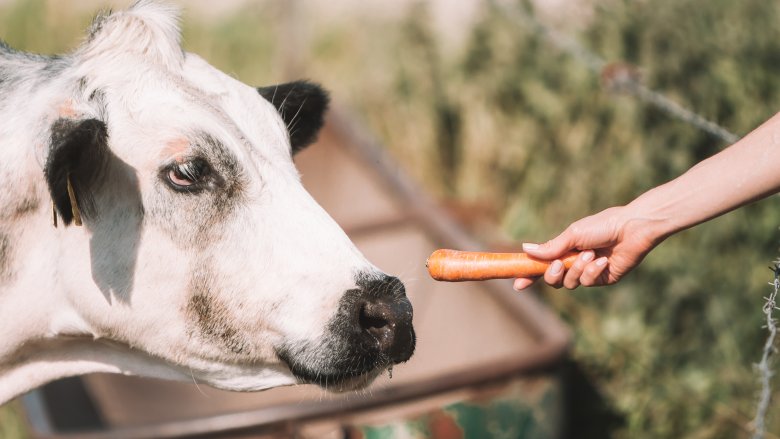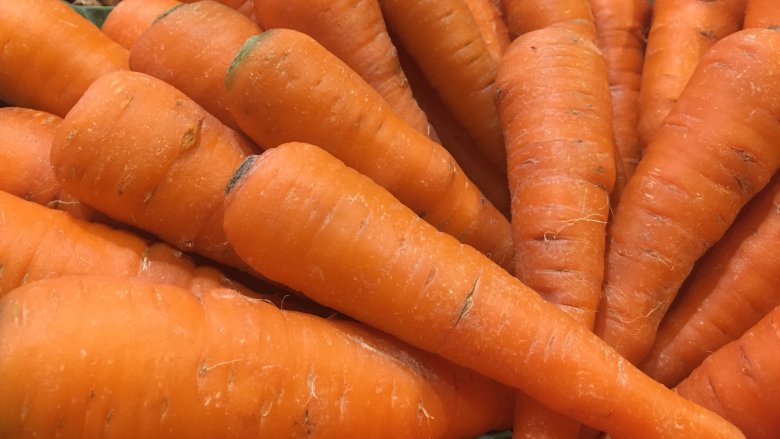The Truth About Carrot-Fed Beef
When it comes to beef, there's a new trend that has Las Vegas steakhouses and celebrity chefs like Wolfgang Puck excited about the firing up the grill — carrot-fed beef. This is exactly what it sounds like, too — cows are given a healthy diet of carrots to pump them full of beta carotene and B vitamins. Carrot-fed beef might not be in your local butcher shop just yet, but it could soon be on its way according to Food & Wine. Here's the lowdown on this flavorful new beef and why it has steak connoisseurs taking notice.
The carrot-fed beef that's good enough to make Wolfgang puck "raise his eyebrows" in surprised approval comes from a California cattle ranch with the somewhat gimmicky name of Santa Carota. Like many other beef ranches, Santa Carota's cows do enjoy grass in their diet, but 95 percent of what they eat is carrots. According to the ranch's website, the grass and corn feed that is often given to Angus beef is 88 percent dry food, whereas carrots have a much higher percentage of water that results in sweeter beef. Food & Wine writer and Santa Carota beef taste-tester, Andrea Bennett, seemed to back up the ranch's claim and said her carrot-fed steak was "intensely beefy and rich" with a "buttery meat" that actually didn't taste like carrots.
How carrot-fed beef differs from grass-fed beef
Grass-fed beef became popular again in the 2000s, after years of beef ranchers feeding cows a corn-heavy diet (via NPR). Corn fattened the cows up quicker, but grass-fed cows produced beef that was richer in heart-healthy omega-3 fatty acids. Of course, taste preference between the two may differ for some people. Grass-fed beef also tends to command a higher cost on the menu. As for the carrot advantage over corn, carrots add that needed moisture to keep the beef juicy and fatten the cows up as well as corn without any need for hormones. Concerning the sugar content, carrots also have four fewer grams per cup than corn (via SparkPeople).
Feeding a carrot-heavy diet to cows may or may not take off, but it's not exactly some undiscovered beef rancher secret. Michigan State University released a report in 2008 on feeding carrots to cattle and found that providing carrots to cattle was cheaper and was a better buy overall for ranchers. One would hope that this means carrot-fed beef is even cheaper for consumers (and better-tasting) than corn or grass-fed beef. Then again, hype can really drive up prices.

